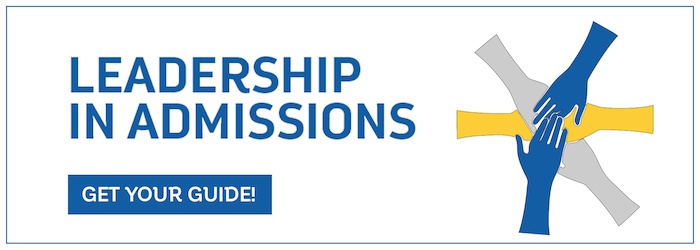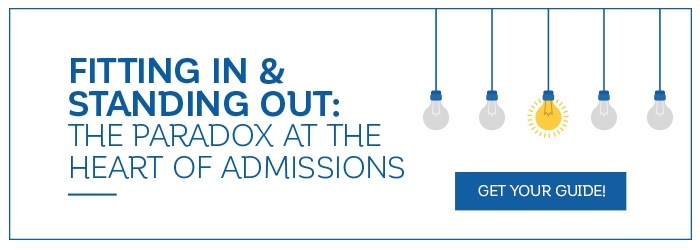![The ultimate guide for applying to Masters in Finance programs]()
![The ultimate guide for applying to Masters in Finance programs - How to Get Accepted]()
You know what you want: a Master’s in Finance (MFin, also sometimes MSF).
That goal raises questions, perhaps the most important one being: What does the Master’s in Finance adcom want to see in you, the applicant?
And that leads to two additional critical, practical questions:
• How do you determine what MFin programs are best for you, and what programs you are qualified for? This is about “fit.”
• How do you wrestle with the complex and time-consuming application process? This is about resourcefulness and organization.
These questions represent the basics of MFin applications, and the purpose of this post is to provide you with a clear, comprehensive, usable overview of the MFin application process.
What Masters in Finance Admissions Committees Look for in Applicants
Here are some of the qualifications that the adcom will be seeking:
• Quantitative skills overall
While MFin programs don’t usually require applicants to have specific quantitative coursework, it is essential to provide evidence of quant capability. University of Texas/Austin’s Master’s in Finance website puts it nicely. They say that they are seeking: “mathematical aptitude and demonstrated ability to handle quantitative material.” This can be done through transcripts, test scores, and sometimes work or internships.
• Your undergrad transcript
The adcom will likely first glimpse at two pivotal elements of the transcript: your overall GPA and your major. For most MFin programs, you don’t need to have a quant or finance major, but the adcom will look for evidence of quantitative ability in your transcript. The adcom will also consider the rigor of your coursework and your undergrad institution. They’ll “read” your GPA – does it trend up or down, does it rise or fall in certain types of courses, etc.
• Test scores
Whether you take the GMAT or GRE, the quant score will be critical – especially if your transcript isn’t super quant-heavy. A low quant score will be problematic, so prepare and prepare some more! Since many MFin applicants are non-US citizens, let’s not forget the language tests: TOEFL or IELTS. Some programs have minimums for these scores, so check each school’s criteria carefully.
• Understanding of and genuine zeal for finance
“Finance” sounds kind of sexy (Money! Power! Influence! Fast pace! High stakes!), and the adcoms want to ensure that applicants truly understand the industry in its nitty-gritty, grueling reality and are making an informed decision to pursue it. For applicants to post-experience programs, their resume provides this proof. For early career applicants, evidence of this understanding can come from coursework in finance, internships, work experience, even informational interviews, and self-directed reading.
• Amount of professional experience
There are basically two types of MFin programs. Most MFin programs target early career applicants, which means anywhere from zero to two years of full-time work experience. While such programs usually do not explicitly refuse to consider older applicants, they rarely admit them, and instead often direct them to the MBA program (I have seen this firsthand). Some MFin programs, such as London Business School, target people with more experience, in LBS’ case, 3-8 years. Either way, the programs usually provide specific information on the experience level they seek on their websites.
• Quality of professional experience
While early career programs do not require actual work experience in finance, they do want to see hands-on exposure, ideally via internships, to the field. Among internships, some are better than others – blue chip firms over unknowns, investment banking or asset management over accounting, etc. But it all helps. For applicants to programs for people with experience, your work should be of an appropriate level and show that you are a high performer.
• Personal qualities
MFin graduates will be in the finance business, and that means they must be able to work in teams, communicate, take initiative, and sometimes lead. They should be ethical, civil, engaged. Beyond those basics, the adcom is looking for a range of personalities – they don’t want only gregarious and assertive Type A’s. If you’re reserved and bookish, great – show that this quality gives you unique awareness and perspective (maybe even wit). Let your real personality shine through. To the extent the application allows, portray your outside interests, to show you have a life beyond finance.
• Prospective contributions to the program
This contribution can relate to your specific finance exposure and what you learned from it, your life experiences, your cultural heritage and how it shapes your perspective and values, your passions and involvements – the adcom wants a diverse range of people who will, in some way, enhance the social and academic environment; who will enrich their classmates’ perspectives and experience in the program.
• Career goals
Last but certainly not least. Most MFin applications will ask you to describe your career goals, often your immediate post-program goals. This means specifics, details: what area of finance, what kind of company, what position. Your goals should be realistic and yet appropriately ambitious. Also, briefly clarify why you want to do this. Your goals discussion will provide critical evidence to the adcom that you understand the industry, are focused professionally, and stand a good chance of succeeding. (You could also note how your goals align with the given program’s recruiting, if relevant.)
How to Find the Right Masters in Finance Programs for You
There are lots of MFin programs out there. Here is a straightforward process to efficiently narrow them down and zoom in on those that are right for you.
• Identify what you need and want in a program
Some people are more flexible than others, for myriad reasons. Identify your “must haves,” which may include a specific strength or focus (e.g., risk, analytics, etc. – which often align with other currently important disciplines), a geographic region, or recruiting by certain types of companies. “Wants” come next: they are the qualities that attract you, but you can live without (would love a major city, would settle for a suburban campus; would love an Ivy brand, would settle for top-20).
• Evaluate your competitiveness
Key pillars of your competitiveness are GPA and undergrad transcript, test scores, and experience/exposure to finance (see the preceding section). Look at the student profiles on websites of various MFin programs and see how you compare in these dimensions. This exercise will give you an idea of your relative competitiveness. You can then determine what schools for you would be reaches, on-pars, and safeties.
• Research schools
Look at curriculum structure and content, recruiting stats, clubs and activities, school culture, etc. Get a sense for what excites you, and what if anything turns you off.
• Make your list
Integrating the info from the three steps above, make your list of target schools. People who want to attend an MFin program no matter what should include some reaches, on-pars, and safeties. Others may find the MFin only worthwhile if they attend a top-ranked program, and they will reasonably have only reaches.
And now for the real heavy lifting…
Putting Your Masters in Finance Application Together
Each of the various application components gives you space to further distinguish yourself, convey messages you deem strategically beneficial, and – like the whoosh of a magic wand – turn facts, figures, and information into a living, breathing human being. One the adcom wants to admit.
Here we go – my advice below largely pertains to MFin applications, as general advice on these elements is available elsewhere.
Resume
For early career applicants, if internships are your main exposure to the field of finance, spotlight them and provide some detail about what you did. For experienced applicants, be sure to show your impact and contribution to your company and industry. For both groups, add detail in experiences that reflect unusual or interesting aspects of finance, which will enhance your potential to contribute to the program.
Essays
On the surface, many MFin applicants will seem similar in terms of academics, experience, and goals. Here is your chance to tell your individual story of how you came to finance. It needn’t be dramatic or exotic – it’s unique because there’s only one of its kind. Even a very short goals essay can be used to that effect, giving your application a personal voice. In discussing goals, also mention your vision, what you want to make happen. And don’t hesitate to “show the love” for the program with thoughtful points about how it supports your goals.
Recommendations
Early career applicants will likely use a mix of professors and internship or work recommenders. To avoid generic recommendations when using professors, discuss with them why you are applying to an MFin program and what your goals are. For experienced applicants, select recommenders who will discuss your contributions to the field/industry and your unique perspective, as well as your impacts and strengths.
Interview
Usually this step means you’ve cleared one bar, as most MFin programs do a “first cut” for interviews. So, go in confident! Before the interview, further research the program and the areas of finance most pertinent to you.
Keep an eye out for more, shorter posts that dig into some of the topics mentioned in this overview. Contact me at Accepted if you are interested in consulting with me as you apply to Masters in Finance programs.
![Download our free report: GET YOUR GAME ON: Preparing for Your Grad School Application]()
![Cindy Tokumitsu Cindy Tokumitsu]() Cindy Tokumitsu has advised hundreds of successful applicants, helping them gain acceptance to top MFin, MBA and EMBA, and other graduate management programs in her 15+ years with Accepted. She would love to help you too. Want Cindy to help you get Accepted? Click here to get in touch!
Cindy Tokumitsu has advised hundreds of successful applicants, helping them gain acceptance to top MFin, MBA and EMBA, and other graduate management programs in her 15+ years with Accepted. She would love to help you too. Want Cindy to help you get Accepted? Click here to get in touch!
Related Resources:
• Fitting In & Standing Out: the Paradox at the Heart of Admissions, a free guide
• 16 Grad School Application Mistakes You Don’t Want to Make, a podcast episode
• Why Should I Apply to Graduate School Now?
The post How to Get Accepted to Masters in Finance Programs appeared first on Accepted Admissions Blog.
 The Masters in Finance degree is one of the most up and coming specialized masters programs in the business world.
The Masters in Finance degree is one of the most up and coming specialized masters programs in the business world. *Theme music is courtesy of podcastthemes.com.
*Theme music is courtesy of podcastthemes.com.




















































 Cindy Tokumitsu has advised hundreds of successful applicants, helping them gain acceptance to top MFin, MBA, EMBA and other graduate management programs in her 15+ years with Accepted. She would love to help you too.
Cindy Tokumitsu has advised hundreds of successful applicants, helping them gain acceptance to top MFin, MBA, EMBA and other graduate management programs in her 15+ years with Accepted. She would love to help you too. 

 ) and recounting to a colleague or friend an interesting recent experience you had. You don’t cite every detail but rather convey just the details relevant to that particular conversation, and you supplement the facts of the story with brief reflections or elaborations of what you were thinking or feeling at a pivotal moment. You slow down when approaching the turning point. You wrap up with a brief comment or look back (“I learned a lot, but I really hope I never have to go through that again!”).
) and recounting to a colleague or friend an interesting recent experience you had. You don’t cite every detail but rather convey just the details relevant to that particular conversation, and you supplement the facts of the story with brief reflections or elaborations of what you were thinking or feeling at a pivotal moment. You slow down when approaching the turning point. You wrap up with a brief comment or look back (“I learned a lot, but I really hope I never have to go through that again!”).








